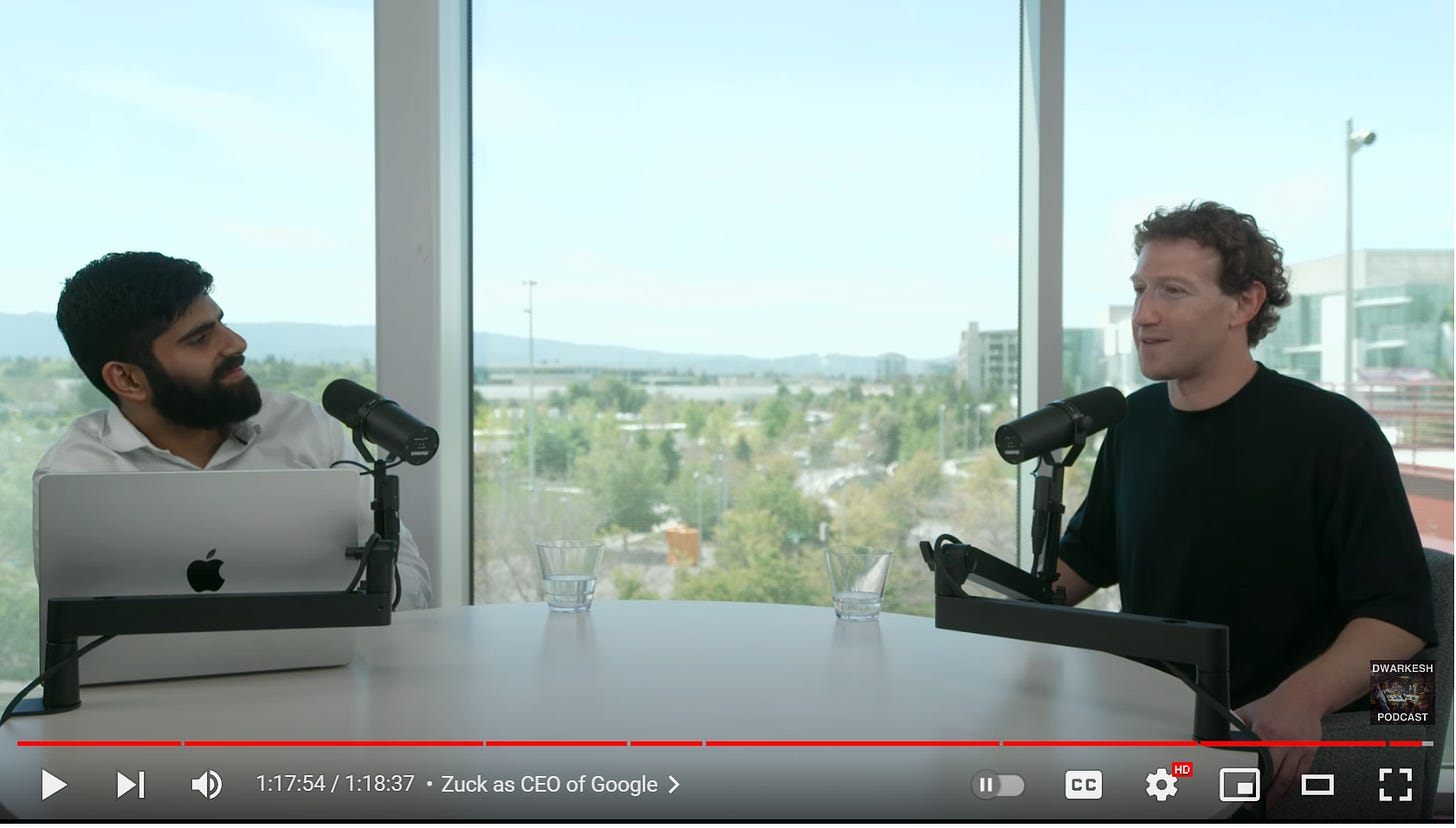Frustrated by claims that "enlightenment" and similar meditative/introspective practices can't be explained and that you only understand if you experience them, Kaj set out to write his own detailed gears-level, non-mysterious, non-"woo" explanation of how meditation, etc., work in the same way you might explain the operation of an internal combustion engine.

Popular Comments
Recent Discussion
The history of science has tons of examples of the same thing being discovered multiple time independently; wikipedia has a whole list of examples here. If your goal in studying the history of science is to extract the predictable/overdetermined component of humanity's trajectory, then it makes sense to focus on such examples.
But if your goal is to achieve high counterfactual impact in your own research, then you should probably draw inspiration from the opposite: "singular" discoveries, i.e. discoveries which nobody else was anywhere close to figuring out. After all, if someone else would have figured it out shortly after anyways, then the discovery probably wasn't very counterfactually impactful.
Alas, nobody seems to have made a list of highly counterfactual scientific discoveries, to complement wikipedia's list of multiple discoveries.
To...
Often I see people dismiss the things the Epicureans got right with an appeal to their lack of the scientific method, which has always seemed a bit backwards to me.
The most important thing, I think, is not even hitting the nail on the head, but knowing (i.e. really acknowledging) that a nail can be hit in multiple places. If you know that, the rest is just a matter of testing.
The Löwenheim–Skolem theorem implies, among other things, that any first-order theory whose symbols are countable, and which has an infinite model, has a countably infinite model. This means that, in attempting to refer to uncountably infinite structures (such as in set theory), one "may as well" be referring to an only countably infinite structure, as far as proofs are concerned.
The main limitation I see with this theorem is that it preserves arbitrarily deep quantifier nesting. In Peano arithmetic, it is possible to form statements that correspond (under the standard interpretation) to arbitrary statements in the arithmetic hierarchy (by which I mean, the union of and for arbitrary n). Not all of these statements are computable. In general, the question of whether a given statement is...
I think what you proved essentially boils down to the fact that a consistent guessing oracle can be used to compute a completion of any consistent recursively axiomatizable theory. (In fact, it turns out that a consistent guessing oracle can be used to compute a model (in the sense of functions and relations on a set) of any consistent recursively axiomatizable theory; this follows from what you showed and the fact that an oracle for a complete theory can be used to compute a model of that theory.)
I disagree with
...Philosophically, what I take from this is th
I prefer to keep plans private but I'm making big progress on meditation and mental re-wiring. Am working on a way to publicly demonstrate. Public plans just stress me out. I recently set two pretty ambitious goals. I figured I could use psychedelics to turbo-charge progress. The meditation one is coming along FAST.
The other goal is honestly blocked a bit on being super out of shape. Multiple rounds of covid really destroyed my cardio and energy levels. Need to rebuild those before a big push on goal 2.
...The operation, called Big River Services International, sells around $1 million a year of goods through e-commerce marketplaces including eBay, Shopify, Walmart and Amazon AMZN 1.49%increase; green up pointing triangle.com under brand names such as Rapid Cascade and Svea Bliss. “We are entrepreneurs, thinkers, marketers and creators,” Big River says on its website. “We have a passion for customers and aren’t afraid to experiment.”
What the website doesn’t say is that Big River is an arm of Amazon that surreptitiously gathers intelligence on the tech giant’s competitors.
Born out of a 2015 plan code named “Project Curiosity,” Big River uses its sales across multiple countries to obtain pricing data, logistics information and other details about rival e-commerce marketplaces, logistics operations and payments services, according to people familiar with Big
The program expanded in response to Amazon wanting to collect data about more retailers, not because Amazon was viewing this program as a profit center.
Monopolies are profitable and in that case the program would have more than paid for itself, but I probably should have mentioned that explicitly, since maybe someone could have objected that they could have been were more focused on mitigating risk of market share shrinking or accumulating power, instead of increasing profit in the long term. Maybe I fit too much into 2 paragraphs here.
...I didn't see any exa
This post is part of a series by Convergence Analysis. In it, I’ll motivate and review some methods for applying scenario planning methods to AI x-risk strategy. Feedback and discussion are welcome.
Summary
AI is a particularly difficult domain in which to predict the future. Neither AI expertise nor forecasting methods yield reliable predictions. As a result, AI governance lacks the strategic clarity[1] necessary to evaluate and choose between different intermediate-term options.
To complement forecasting, I argue that AI governance researchers and strategists should explore scenario planning. This is a core feature of the AI Clarity program’s approach at Convergence Analysis. Scenario planning is a group of methods for evaluating strategies in domains defined by uncertainty. The common feature of these methods is that they evaluate strategies across several plausible futures, or “scenarios.”
One way scenario...
I generally agree, i just have some specific evidence which I believe should adjust estimates in the report towards expecting more accessible algorithmic improvements than some people seem to think.
It was all quiet. Then it wasn’t.
Note the timestamps on both of these.

Dwarkesh Patel did a podcast with Mark Zuckerberg on the 18th. It was timed to coincide with the release of much of Llama-3, very much the approach of telling your story directly. Dwarkesh is now the true tech media. A meteoric rise, and well earned.

This is two related posts in one. First I cover the podcast, then I cover Llama-3 itself.
My notes are edited to incorporate context from later explorations of Llama-3, as I judged that the readability benefits exceeded the purity costs.
Podcast Notes: Llama-3 Capabilities
- (1:00) They start with Llama 3 and the new L3-powered version of Meta AI. Zuckerberg says “With Llama 3, we think now that Meta AI is the most intelligent, freely-available
I think people just say "zero marginal cost" in this context to refer to very low marginal cost. I agree that inference isn't actually that low cost though. (Certainly much higher than the cost of distributing/serving software.)
I'm pretty sure that I would study for fun in the posthuman utopia, because I both value and enjoy studying and a utopia that can't carry those values through seems like a pretty shallow imitation of a utopia.
There won't be a local benevolent god to put that wisdom into my head, because I will be a local benevolent god with more knowledge than most others around. I'll be studying things that have only recently been explored, or that nobody has yet discovered. Otherwise again, what sort of shallow imitation of a posthuman utopia is this?
Anthropic's recent mechanistic interpretability paper, Toy Models of Superposition, helps to demonstrate the conceptual richness of very small feedforward neural networks. Even when being trained on synthetic, hand-coded data to reconstruct a very straightforward function (the identity map), there appears to be non-trivial mathematics at play and the analysis of these small networks seems to providing an interesting playground for mechanistic interpretability.
While trying to understand their work and train my own toy models, I ended up making various notes on the underlying mathematics. This post is a slightly neatened-up version of those notes, but is still quite rough and un-edited and is a far-from-optimal presentation of the material. In particular, these notes may contain errors, which are my responsibility.
1. Directly Analyzing the Critical Points of a Linear
...Indeed the integrals in the sparse case aren't so bad https://arxiv.org/abs/2310.06301. I don't think the analogy to the Thompson problem is correct, it's similar but qualitatively different (there is a large literature on tight frames that is arguably more relevant).
Like almost all acausal scenarios, this seems to be privileging the hypothesis to an absurd degree.
Why should the Earth superintelligence care about you, but not about the other 10^10^30 other causally independent ASIs that are latent in the hypothesis space, each capable of running enormous numbers of copies of the Earth ASI in various scenarios?
Even if that was resolved, why should the Earth ASI behave according to hypothetical other utility functions? Sure, the evidence is consistent with being a copy running in a simulation with a different utility fun...
